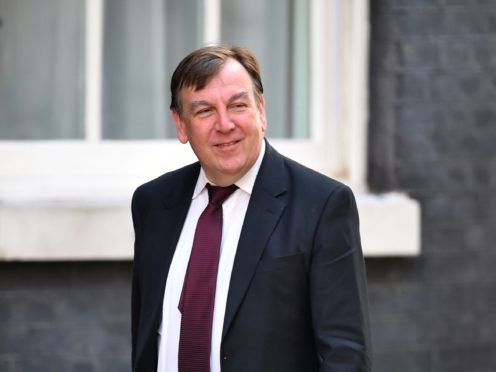Ministers risk dragging Britons into a “draconian censorship regime” as they clamp down on social media, a former culture secretary has warned.
A long-awaited Government White Paper that will address online harms is to be released on Monday, aimed at tackling a range of issues including cyberbullying, revenge porn, hate speech and access to material relating to suicide and terrorism.
Likely measures to make tech giants and social networks more accountable for the content on their platforms have been widely welcomed, but Tory MP John Whittingdale said he feared the plans could “give succour to Britain’s enemies”, giving them an excuse to further censor their own people.
Writing in the Mail on Sunday, he said: “With their ‘duty of care’, well-meaning ministers want the same laws to apply online as offline – but they risk dragging British citizens into a draconian censorship regime instead.”
Acknowledging that it was “right” to crack down on the internet being used by paedophiles, organised criminals and those who promote self-harm, he added: “However, countries such as China, Russia and North Korea, which allow no political dissent and deny their people freedom of speech, are also keen to impose censorship online, just as they already do on traditional media.
“This mooted new UK regulator must not give the despots an excuse to claim that they are simply following an example set by Britain, where civil liberties were first entrenched in Magna Carta 800 years ago.”
Mr Whittingdale, who was culture secretary from 2015-16, warned that any regulatory body tasked with overseeing the internet should be “genuinely independent of government, not run by faceless bureaucrats in Whitehall”.
Vital discussions at G7 around online terror content – especially after horrors of Christchurch. I made clear our upcoming Online Harms White Paper will ensure social media firms take more responsibility. Much more global action needed in this area #G7France (1/2) pic.twitter.com/Kc9aMPCIRG
— Sajid Javid (@sajidjavid) April 4, 2019
His words echoed comments made by internet safety expert John Carr, who said there should be no political involvement with how the internet is managed.
Mr Carr, secretary of the Children’s Charities’ Coalition on Internet Safety and a senior expert adviser to the UN, said: “The key thing is the regulator has to be demonstrably independent of Government and has to be populated by trusted people with a lot of technical knowledge.”
According to reports, Ofcom could be nominated as a regulator to oversee online harms, though a new body could be set up in the future.
Home Secretary Sajid Javid has said the White Paper will ensure social media firms take more responsibility, and vowed that Britain would be a “global leader” in taking action against online harm.
